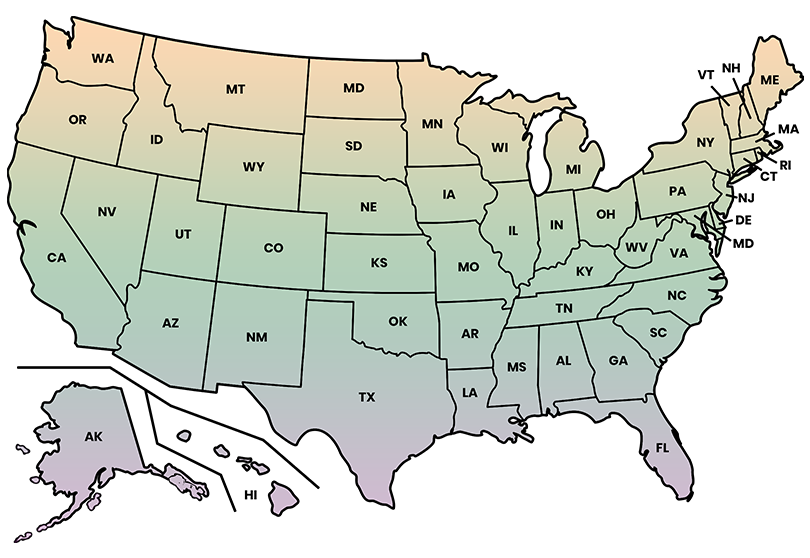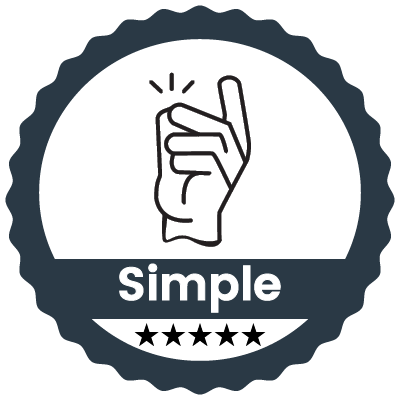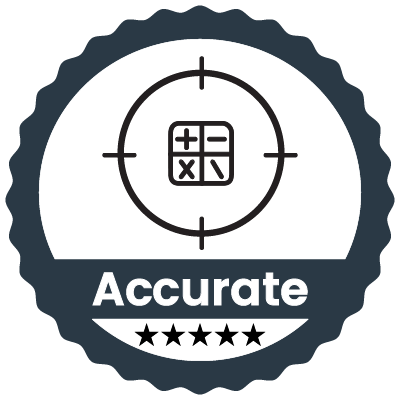Before providing pay stubs to employees and contractors in Connecticut, it's crucial to understand the laws and regulations governing payroll operations.
This guide outlines the relevant legal requirements and regulations that employers in Connecticut need to adhere to when managing payroll and issuing pay stubs.

Pay stub regulations in Connecticut
1. Are pay stubs required by law in Connecticut?
Employers in Connecticut must provide their employees with pay stubs every payday.
2. How often do you need a pay stub in Connecticut?
You will need to pay your employees either weekly or every two weeks. As pay stubs are mandatory in Connecticut, you will need to provide pay stubs every time you pay your employees.
3. What information can be included on a pay stub in Connecticut?
The following information must be included in employee pay stubs:
- Hours worked
- Gross earnings showing straight time and overtime as separate entries for non-exempt employees (not required for exempt from payment of overtime under Connecticut's minimum wage law or the FLSA)
- Itemized deductions
- Net earnings
- Employee information such as name, last 4 digits of social security number, and address
- Employer information such as name, employer identification number (EIN), and address
4. Does Connecticut have a state income tax?
Yes, state income taxes are applicable to employees in the state of Connecticut.
5. Are there any other taxes applicable to Connecticut?
No. There are no local taxes in addition to federal and state income taxes applicable to employees in the state of Connecticut.
Information needed to generate pay stubs
To provide employees with accurate pay stubs, the information below is required.
- Employee’s withholding code and reduced withholding amount
- Employee’s exemption status from state withholding
- Connecticut paid leave exemption status
- Additional state withholding amount
Connecticut wage and hour laws
Connecticut employers are required to comply with wage and hour regulations to ensure that non-exempt employees receive fair compensation. This includes paying at least the minimum wage, providing proper compensation for overtime hours worked, ensuring access to adequate meal and rest breaks, and granting appropriate paid time-off benefits.
In Connecticut, these regulations encompass various aspects of employment law
Connecticut Minimum wage
Connecticut law mandates that businesses must ensure their employees receive at least the minimum hourly wage set by statutory regulations.
As of 2025, the basic minimum wage rate per hour in Connecticut is $16.35.
Overtime pay
Employers in Connecticut are obligated to compensate employees at a rate of 1-1/2 times their regular pay for hours worked beyond 40 in a workweek. Overtime pay is specifically for hours worked over this threshold. There is no mandatory requirement to pay overtime for daily work, weekends, or holidays unless otherwise agreed upon.
Connecticut Meal break
In Connecticut, employers must offer at least one 30-minute meal break to employees working 7 ½ consecutive hours or more, occurring between two and 5 ½ hours into the shift. Exceptions include situations where compliance could harm public safety, shifts with fewer than five employees, roles requiring sole staffing, and continuous work like chemical production or research. Employees must be compensated for breaks in certain cases. The law doesn't cover State Board of Education-certified professionals in schools. Employers and employees can mutually establish different meal periods. Violations may result in a $150 penalty imposed by the Labor Commissioner.
Connecticut Rest break
Connecticut employers are not required by law to provide rest breaks for their employees.
Paid time off and leave
Connecticut law mandates that employers provide employees with various types of leave benefits, including both mandatory and discretionary options.
| Required Leave | Non-Required leave | |
|---|---|---|
| paid | Unpaid | Paid or Unpaid |
| Employees are entitled to payment for the initial five days they serve on a jury, unless the Chief Court Administrator has exempted the employer from this obligation. | Under the newly enacted Connecticut Family and Medical Leave Act, employees at businesses with one or more staff members will have access to up to 12 weeks of paid leave. | Vacation leave |
| Sick leave -1 hour of paid sick leave for every 40 hours worked. | Voting leave - 2 hours of unpaid time off | Bereavement leave |
| Military leave | Sick leave | |
Connecticut State payroll taxes 2025
In Connecticut, payroll taxes are categorized into various classifications:
- Connecticut Personal Income Tax(PIT)
- Connecticut State Unemployment Insurance (UI) Tax
- Connecticut Paid Family and Medical Leave (PFML)
Connecticut Personal Income Tax(PIT)
Connecticut's state personal income tax rates differ based on an individual's filing status and income level, with options including Single, Married Filing Separately, Married Filing Jointly, and Head of Household.
Starting in the 2024 tax year, Connecticut’s income tax will have seven tax brackets, with rates ranging from 2.00% to 6.99%. The rates are marginal, meaning only the income within each bracket is taxed at the corresponding rate. The income ranges for each bracket differ based on filing status.
Below are the taxable income and tax rates for all type of filings,
As of 2024 and after, the tax rates and brackets for single and married filing separately filers in Connecticut:
| If the Connecticut taxable income | The tax is |
|---|---|
| Over $0 but not over $10,000 | 2.00% of the excess over $0 |
| Over $10,000 but not over $50,000 | 4.50% of the excess over $10,000 |
| Over $50,000 but not over $100,000 | 5.50% of the excess over $50,000 |
| Over $100,000 but not over $200,000 | 6.00% of the excess over $100,000 |
| Over $200,000 but not over $250,000 | 6.50% of the excess over $200,000 |
| Over $250,000 but not over $500,000 | 6.90% of the excess over $250,000 |
| Over $500,000 | 6.99% of the excess over $500,000 |
As of 2024 and after, the tax rates and brackets for Married filing jointly filers in Connecticut:
| If the Connecticut taxable income | The tax is |
|---|---|
| Over $0 but not over $20,000 | 2.00% of the excess over $0 |
| Over $20,000 but not over $100,000 | 4.50% of the excess over $20,000 |
| Over $100,000 but not over $200,000 | 5.50% of the excess over $100,000 |
| Over $200,000 but not over $400,000 | 6.00% of the excess over $200,000 |
| Over $400,000 but not over $500,000 | 6.50% of the excess over $400,000 |
| Over $500,000 but not over $1,000,000 | 6.90% of the excess over $500,000 |
| Over $1,000,000 | 6.99% of the excess over $1,000,000 |
As of 2024 and after, the tax rates and brackets for Heads of household in Connecticut:
| If the Connecticut taxable income | The tax is |
|---|---|
| Over $0 but not over $16,000 | 2.00% of the excess over $0 |
| Over $16,000 but not over $80,000 | 4.50% of the excess over $16,000 |
| Over $80,000 but not over $160,000 | 5.50% of the excess over $80,000 |
| Over $160,000 but not over $320,000 | 6.00% of the excess over $160,000 |
| Over $320,000 but not over $400,000 | 6.50% of the excess over $320,000 |
| Over $400,000 but not over $800,000 | 6.90% of the excess over $400,000 |
| Over $800,000 | 6.99% of the excess over $800,000 |
Connecticut State Unemployment Insurance (UI) Tax
Connecticut enacted the State Unemployment Tax Act (SUTA) to support individuals facing unemployment by providing them with unemployment benefits. This legislation helps the state collect the essential funds required to administer unemployment insurance benefits to eligible individuals during times of job loss.
In 2025, several changes will affect Connecticut's unemployment insurance system:
- The Taxable Wage Base (TWB) will increase from $25,000 to $26,100.
- The new employer rate will decrease from 2.5% to 2.2%.
- The minimum charged rate will remain at 0.1%, while the maximum charged rate will be capped at 10.0%.
- To ease the impact of the TWB increase, charged rates for 2025 will be reduced by 1.269, bringing the maximum charged rate down to 7.9%.
- The fund solvency tax rate will remain at 1.0%.
- The minimum contribution rate will be set at 1.1%, and the maximum contribution rate will be 8.9% for 2025.
Connecticut Paid Family and Medical Leave (PFML)
For small businesses in Connecticut, the Paid Family and Medical Leave Act (PFML) applies if you have one or more employees, except in specific cases outlined by law. As an employer, you must deduct 0.5% from your workers' payroll and submit these contributions to the CT Paid Leave Authority quarterly. Ensure compliance with the CT Paid Family and Medical Leave Act to prevent unforeseen fees and penalties.
Connecticut payroll tax filing
- Report of New hire Employees
- Report of Independent Contractors
- Connecticut personal income tax filing
- Quarterly wage and tax report(Forms UC-2 / UC-5A)
Report of New hire Employees
Connecticut mandates that all employers report newly-hired employees within 20 days of their hiring date. If an employee rejoins your company after a separation lasting 60 days or more, they should be reported as a new hire. Additionally, the Date of Hire is defined as the first day an employee performs compensated services for your organization.
Report of Independent Contractors
In Connecticut, employers are required to report newly hired independent contractors if the anticipated remuneration for their services is expected to exceed $5,000 per year.
How to report employees and independent contractors hired in Connecticut?
Connecticut offers various options for submitting new hire information, allowing employers flexibility in the reporting process.
| Online | Fax | |
|---|---|---|
| Employees and independent contractors New Hire Report | Connecticut Department of Labor Address Information: ATTN CT-W4 200 Folly Brook Blvd. Wethersfield, CT 06109 Public Phone: 860-263-6310 Email: dol.ctnewhires@ct.gov | Fax 1: 800-816-1108 |
Connecticut personal income tax filing
Connecticut income tax returns must be filed on or before April 15, for calendar year filers. If you're not a calendar year filer, your return is due on or before the fifteenth day of the fourth month following the close of your taxable year. If the due date falls on a Saturday, Sunday, or legal holiday, the return will be considered timely filed if submitted by the next business day. Forms CT-1040 are used for filing resident personal income tax, while Form CT-1040NR/PY is for filing nonresident and part-year personal income tax.
Interest and penalties are applicable to any portion of the tax not paid on or before the original due date of the return.
Quarterly wage and tax report(Forms UC-2 / UC-5A)
According to state statute, existing employers in Connecticut are required to file and pay their UI tax and wage returns electronically unless granted a waiver. This obligation applies to taxable employers who file the Employer Contribution Return and Employee Quarterly Earnings Report (Forms UC-2 / UC-5A). Under Connecticut law, most employers report wages to the Labor Department quarterly, with federal agencies and the military being the primary exemptions from this reporting requirement.
| Reporting Period | Due Date |
|---|---|
| Quarter 1(January, February, March) | April 30 |
| Quarter 2(April, May, June) | July 31 |
| Quarter 3(July, August, September) | October 31 |
| Quarter 4(October, November, December) | January 31 |
Have all the information handy?
With SecurePayStubs, you can calculate accurate federal and Connecticut state taxes for your employees and generate pay stubs securely.
Processing payroll manually is complex
As a business owner who runs payroll manually, you will need to keep up with ever-changing payroll laws. You already have a lot on your plate and you might not want to get into the complex process of pay stub generation.
With SecurePayStubs' paystub generator,you can swiftly create pay stubs for your employees, ensuring precise calculations for federal and Connecticut state taxes, as well as independent contractors, all in under 2 minutes. Enter the basic employee and employer information, select a pay stub template for free, and let SecurePayStubs calculate the applicable payroll taxes accurately.
Spend less time generating pay stubs and more on your business growth.
This article has been updated from its original publication date of March 12, 2025.




